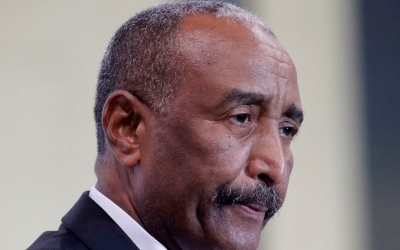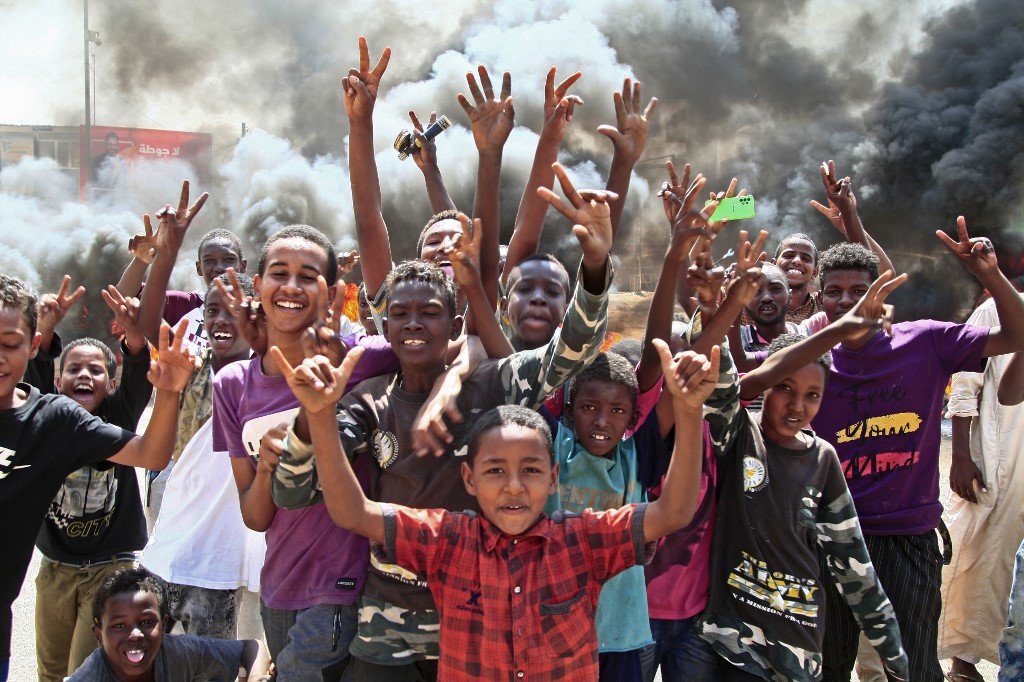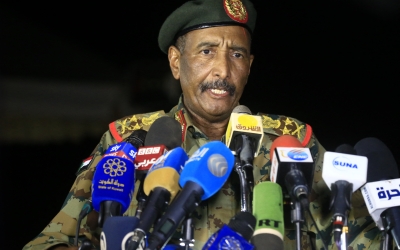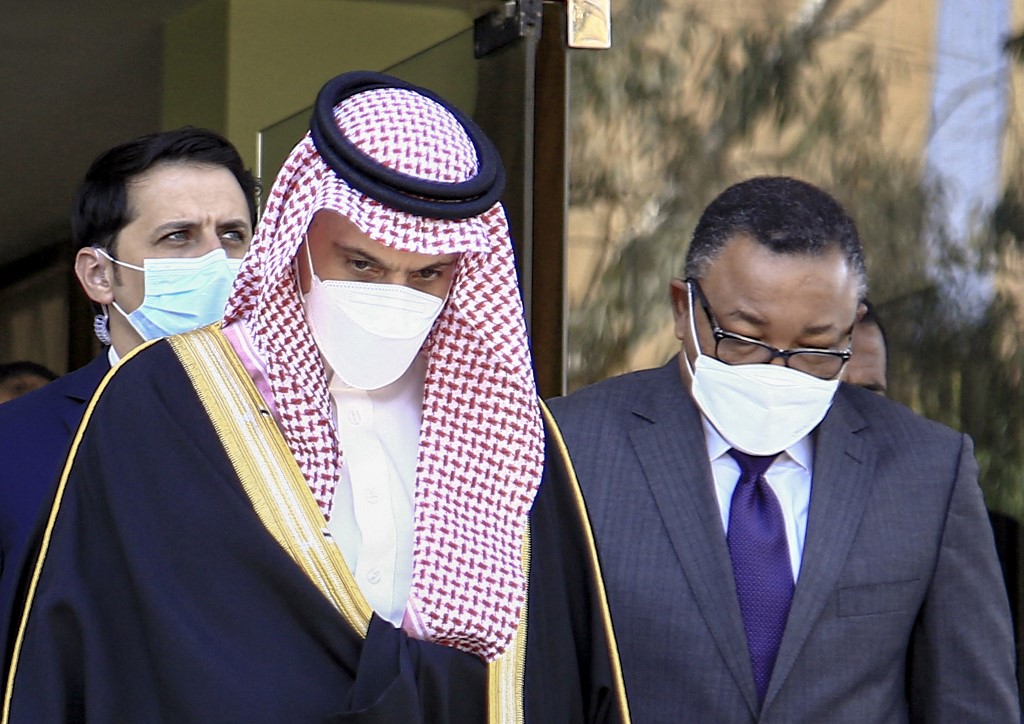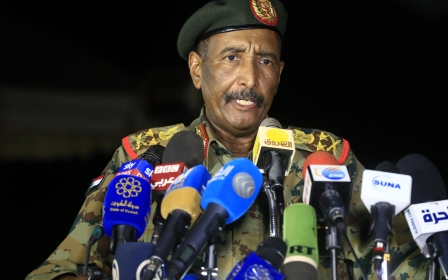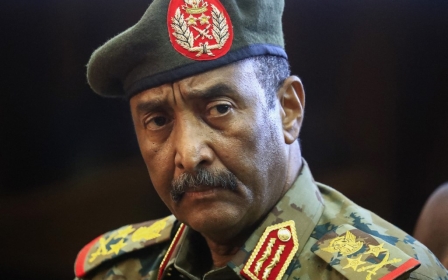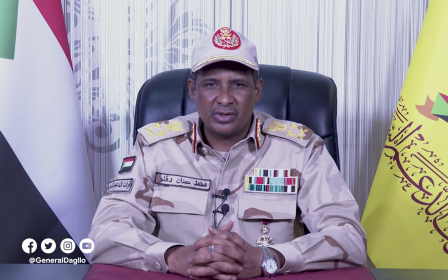Sudan coup: How civilian leadership can be restored
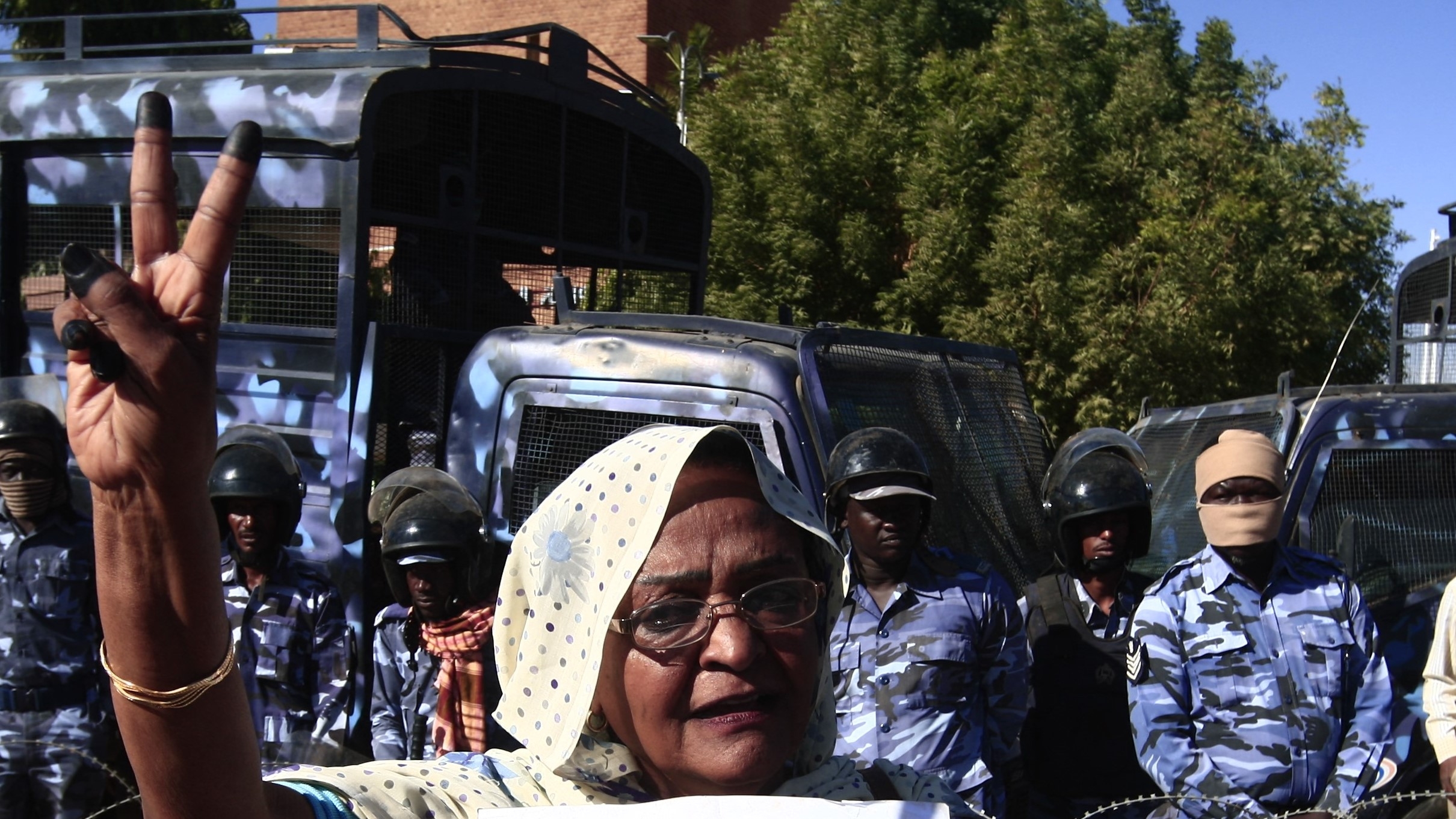
The US response to the recent military takeover in Sudan was unambiguous. State Department spokesperson Ned Price condemned it and announced the suspension of $700m in emergency financial assistance to the country. He said Sudan would remain subject to restrictions that were imposed after the 1989 coup until the Biden administration “determines that a democratically elected government has taken office”.
The World Bank halted the disbursement of $2bn in project financing, the EU threatened to halt its own financial assistance, and the African Union suspended Sudan’s membership. Sudanese protesters calling for a restoration of the civilian government added to the pressure by turning out in large numbers across the country.
Supporters of Sudan's democratic transition, both domestic and foreign, must do more than ensure a return to the status quo ante
Such responses offer some hope of compelling the leader of the coup, General Abdel Fattah al-Burhan, to allow a peaceful restoration of Prime Minister Abdalla Hamdok’s civilian government. If that were to occur, the formation of a new “technocratic” government, as Burhan has proposed, would be likely.
But such a compromise would only restore an inherently unstable situation, and worse, it might merely delay the moment when the Sudanese Armed Forces (SAF) and their allies see a more favourable opportunity to seize power.
This seems to be what is at play in Burhan's newly announced transitional council, which he leads and which features civilian representatives with longstanding ties to the era of ousted ruler Omar al-Bashir and his National Congress Party (NCP).
New MEE newsletter: Jerusalem Dispatch
Sign up to get the latest insights and analysis on Israel-Palestine, alongside Turkey Unpacked and other MEE newsletters
Supporters of Sudan’s democratic transition, both domestic and foreign, must do more than ensure a return to the status quo ante. This requires addressing the economic and social malaise and regional grievances that underlie the country’s political crisis. Most immediately, it means taking bold action to put Sudan’s civil-military relations on a new path.
Leading the way should be the pro-democracy parties and associations that will have to negotiate an exit from the current crisis for both the coup leaders and the US and its backers. Regional neighbours such as Egypt, Saudi Arabia and the UAE should also ideally brought on board. Swift action in line with a strategic vision will be crucial.
Consolidating the coup
Burhan and his fellow coup leaders may be better prepared politically next time. They clearly failed to realise that they would need to build an effective civilian coalition in advance, in order to legitimise and consolidate the coup in its immediate aftermath. There were obvious potential allies in the political parties that already opposed the Hamdok government, or ones that had recently broken away from the main government alliance, the Forces of Freedom and Change. Instead, the coup leaders appear to have relied exclusively on their own patronage networks, including former supporters of Bashir and assorted Islamists.
The very different course of events in Egypt in 2013 offers a striking contrast. There, the army worked closely with civilian grassroots activists and allied parties over several months to be able to take power at the crest of the 2013 demonstrations by millions of Egyptians against then-president Mohamed Morsi. They had a new government waiting in the wings.
The SAF and its allies behaved less carefully, doing little more than bussing supporters into Khartoum a week ahead of the coup to call for a military intervention, where they were dwarfed by the much larger number of demonstrators who came out to support civilian rule.
Considerable obstacles stand in the way of a democratic transition. Chief among them are disunity within the pro-democracy camp and civilian support for the military. Various SAF factions have exploited these factors to mount numerous coup attempts since 1956, of which five have been successful. By some accounts, Burhan might have been forced to act by military hardliners, who may still push him aside if he compromises.
Deep communal divisions across the country will impede every course of action in the days ahead. Successive civil wars and internecine conflicts, estimated to have killed upwards of two million people and led to the independence of South Sudan in July 2011, took place entirely on the watch of one military-backed regime in Khartoum or another. This alone should be a powerful argument for resetting civil-military relations.
Deepening the transition
The visible lack of preparedness of the coup leaders reveals their political ineptitude and suggests a sense of panic. They have inadvertently provided the pro-democracy camp with an opportunity to retake the initiative and deepen the transition. The senior generals have demonstrated that they are very much a remnant of the Bashir regime.
Burhan should be required to step down as head of any transitional council appointed, including his own new one. The planned rotation of his post to a civilian, originally scheduled to take place in May 2021 and since delayed to as late as July 2022, should happen immediately. External actors should place this demand squarely on their agenda.
Just as importantly, Burhan must also step down as the SAF’s commander-in-chief, alongside a clean sweep of the SAF command to bring in fresh blood. There is a real risk that removal of the military’s old guard may simply pave the way for an ambitious younger general to take power, as with General Abdel Fattah al-Sisi in Egypt. For this reason, Sudan should break with tradition and appoint a civilian as defence minister.
To defuse opposition to such a move within the SAF, it is crucial to create different incentive structures to encourage a new generation of commanders - and the mid-level and junior officers below them - to see the benefits of working with, rather than against, civilian control. The goal is not to penalise the armed forces for the 25 October coup, as much as it is to show that the assertion of civilian control presents an opportunity for them as well - and to give them a stake in the success of a democratic transition.
Replacement of the SAF command must be accompanied by structural reforms designed to depoliticise the military, enhance its professionalism and address its capability gaps. Hamdok’s office had been drafting a policy framework for security sector reform, which should be reinstated and expanded in scope and detail.
Constructive engagement
Demonstrating the benefits for the SAF of a different kind of civil-military relationship will be slow and difficult. These efforts may be helped by dangling the extra carrot of a donor coordination body for international security assistance to help the SAF formulate and implement a multi-year plan. This could also be an entry point to a comprehensive review of defence spending.
The US, EU, UK and UN could lead this effort in much the same way as they have done since 2013, with considerable success, for the Lebanese Armed Forces. Aside from holding out the promise of western security assistance, such a framework could be a vehicle for integrating the regional powers with the greatest stake in Sudan’s stability: Egypt, Saudi Arabia and the UAE. All three are already invested in the Sudanese military, so inviting them to contribute training and funding would not involve a major shift. Crucially, creating a tent and bringing them inside it may increase the chances that they would lend their weight to persuading the SAF to engage constructively.
An immediate objective should be to start shaping the expectations and incentive structures of key military and civilian constituencies
In addition, the March agreement between the SAF and the government on transferring the military’s numerous business interests to the civilian domain should be expedited. Military involvement in business is inimical to professionalism, so reinvigorating the divestment agreement would benefit the SAF. Although the agreement was a positive first step, little progress has been made since then.
A considerably thornier challenge consists of dealing with General Mohamed Hamdan “Hemeti” Dagalo, Burhan’s deputy on the Transitional Sovereign Council. The Rapid Support Forces (RSF) he commands were accused of perpetrating atrocities against civilians in Darfur in 2015 and of spearheading the massacre of civilian protesters in June 2019, and Hemeti clearly colluded with Burhan in organising the October coup.
But the political reality of Hemeti’s tribal power base in Darfur, coupled with the fact that the RSF is a formally established state agency - having been elevated from a state-sponsored Janjaweed militia by Bashir, effectively putting it on par with the SAF - will complicate attempts to make him step down or neutralise his forces.
Transition timetable
A start could be made by having a restored civilian government repeal the order issued by Hemeti in June that designated the RSF as part of a joint force tasked with maintaining public order in Khartoum. Instead, the transitional government should invest in bolstering the law-enforcement capabilities of police and other agencies reporting to the interior ministry.
A review should be initiated with the aim of bringing the RSF in line with standard SAF policies and regulations regarding enlistment, officer training, pay, pensions and service conditions. Its budgeting structure and financial management procedures should also be aligned with the Ministry of Defence. In the longer term, other options could be considered, foremost among them the force’s integration into the SAF and other security services.
External actors are in an unusually good position to influence the course of events in Sudan if they align their policies and pool resources. An immediate objective should be to start shaping the expectations and incentive structures of key military and civilian constituencies. This could be done in three ways.
Firstly, external actors should underscore the need to respect the timetable for transition, starting with the transfer of the Transitional Sovereign Council leadership to a civilian. This would also mean scheduling a convention to draft a permanent constitution and design an electoral system to govern the parliamentary elections scheduled for July 2023.
Secondly, outside countries could help to defuse the political crisis in ways that drain support for military intervention. Stepping up economic support, debt relief and targeted social assistance could help to alleviate the government’s acute financial problems, while mitigating the impacts on the population of austerity measures mandated by the International Monetary Fund and bilateral creditors.
Civilian factions should additionally strive to improve their standing with rebel groups that currently support the military by proposing more power-sharing provisions and the “effective inclusion of previously marginalised ethnic groups”, as recommended in a recent working paper issued by the Economic Research Forum.
Regional influence
Last, but far from least, the US and other principal supporters of the pro-democracy camp should lobby hard to get more reluctant regional neighbours on board. The demonstration of a western willingness to step up will in itself shape their perceptions.
Now is a good time to influence the Sisi administration in Egypt, which is keen to pre-empt growing hostility in the US Congress on Cairo’s human rights record, while both Saudi Arabia - which has a special interest in stabilising the Red Sea - and the UAE have a chance to demonstrate their willingness to work with Washington on easing regional tensions.
These three countries have the greatest stake in Sudan’s stability, and efforts should be made to wean them off the notion that the way to achieve this is through yet more military intervention. Even relative neutrality on their part could help to convince the SAF and RSF that they must moderate their own positions.
Sudan was hardly immune from regional geopolitics for the three decades of Bashir’s rule, but the country’s subjection to international sanctions kept it relatively insulated from the rest of the world. That isolation is now over. Domestic politics are in a state of flux not seen since the brief restoration of elected civilian government in the mid-1980s.
The main difference today, however, is the heightened role of western governments. If these external actors can help engineer a better outcome and sustain it this time, then they should do so. For this to happen, they need a clear idea of what to seek and how to attain it. Failure to be proactive in advancing the democratic transition in Sudan at this moment would condemn the country to an even deeper crisis.
A longer version of this article was posted on the Carnegie Middle East Centre website.
The views expressed in this article belong to the author and do not necessarily reflect the editorial policy of Middle East Eye.
Middle East Eye delivers independent and unrivalled coverage and analysis of the Middle East, North Africa and beyond. To learn more about republishing this content and the associated fees, please fill out this form. More about MEE can be found here.



